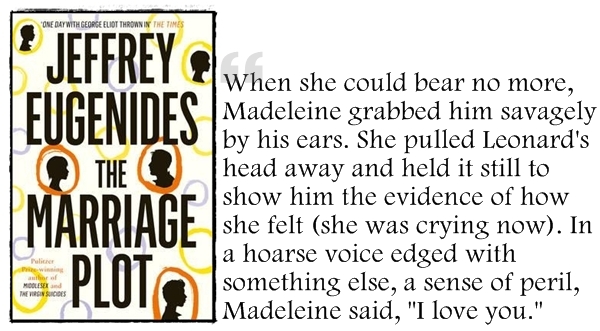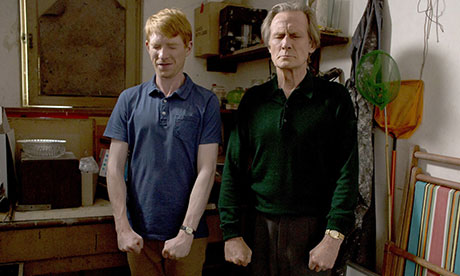I arrived in the movie theater to see the Cohen brother's most recent film, Inside Llewyn Davis, as would an over-the-top, obnoxious sports fan stepping into the stadium to watch their favorite team play. I donned my imaginary foam finger and a flyer saying "go, Joel and Ethan!" I wanted to like the film so badly that I broke my one moviegoing rule- have bare minimum expectations.
I blame the overly-affective marketing. The trailers showcased the best elements of the movie, including the most gorgeous song on the soundtrack (a beautiful version of "Fare Thee Well" written by Bob Dylan and preformed by Oscar Isaac and Marcus Mumford). I hold this song in a special place in my heart, as it helped me greatly in the coping of the recent loss of my grandfather. That being said, the rest of the songs fell far short of the quality of the previously mentioned tune (in my oh-so-humble opinion, anyways).
Brief plot summary: (trust me, it will be as there's not much to tell) Llewyn Davis lives in New York, bouncing from couch to couch as he doesn't have a place of his own as a struggling folk musician. He is attempting to break out as a solo artist but with no success. Eventually he toys with the idea of returning to work as a fisherman and give up his musical aspirations. He also finds out some surprising news from a special lady in his life and tries to deal with that as well. That's the basic recap.
I love the Cohen Brothers almost as much as I love Wes Anderson, and that's a lot of love. But I don't think they filled their own legendary shoes this time around. Generally, the public go to see films to escape and live vicariously through the adventures of others. This filmgoing experience simply made me never want to live the life of a struggling folk musician. Though many of the Cohen brother's films tag along at a slow pace (especially in comparison to the GO, GO, GO high speed stockpile of Hollywood movies today) this one was almost unbearably slow- we're talking snail gliding at its most leisurely pace through molasses. I seldom do this, but during Llewyn Davis I kept trying to catch the light at just the right angle on my watch to see how much time had passed and about how much was left to go. Not exactly what I look for as a filmgoer.
The plot had more loose ends than an unraveling sweater, and consisted of a whole lot of, well, absolutely nothing happening. I kept waiting for the slightest conflict or even plot twist, to no avail. I take that back- there were some rifts in the plot- maybe the issue was too many unresolved conflicts. Will Llewyn succeed in the music world? Will his one night stand have his child? Will he ever decide to get his own feline companion? Who knows.
Yet comedic moments and other saving graces made cameos throughout the story- I laughed out loud several times (except at the jokes from the trailer I had seen dozens of times) and fell quickly in love with the feline star of the film. Yet even in other Cohen brothers films that on the surface appear to be about "nothing" I always feel I get something out of them. I'm still not sure that Inside Llewelyn Davis provided this for me. It is a melancholy, slow-paced film, so if that's what you're in the mood for, I say go see it!
I blame the overly-affective marketing. The trailers showcased the best elements of the movie, including the most gorgeous song on the soundtrack (a beautiful version of "Fare Thee Well" written by Bob Dylan and preformed by Oscar Isaac and Marcus Mumford). I hold this song in a special place in my heart, as it helped me greatly in the coping of the recent loss of my grandfather. That being said, the rest of the songs fell far short of the quality of the previously mentioned tune (in my oh-so-humble opinion, anyways).
Brief plot summary: (trust me, it will be as there's not much to tell) Llewyn Davis lives in New York, bouncing from couch to couch as he doesn't have a place of his own as a struggling folk musician. He is attempting to break out as a solo artist but with no success. Eventually he toys with the idea of returning to work as a fisherman and give up his musical aspirations. He also finds out some surprising news from a special lady in his life and tries to deal with that as well. That's the basic recap.
I love the Cohen Brothers almost as much as I love Wes Anderson, and that's a lot of love. But I don't think they filled their own legendary shoes this time around. Generally, the public go to see films to escape and live vicariously through the adventures of others. This filmgoing experience simply made me never want to live the life of a struggling folk musician. Though many of the Cohen brother's films tag along at a slow pace (especially in comparison to the GO, GO, GO high speed stockpile of Hollywood movies today) this one was almost unbearably slow- we're talking snail gliding at its most leisurely pace through molasses. I seldom do this, but during Llewyn Davis I kept trying to catch the light at just the right angle on my watch to see how much time had passed and about how much was left to go. Not exactly what I look for as a filmgoer.
The plot had more loose ends than an unraveling sweater, and consisted of a whole lot of, well, absolutely nothing happening. I kept waiting for the slightest conflict or even plot twist, to no avail. I take that back- there were some rifts in the plot- maybe the issue was too many unresolved conflicts. Will Llewyn succeed in the music world? Will his one night stand have his child? Will he ever decide to get his own feline companion? Who knows.
 |
| My favorite cast member |






